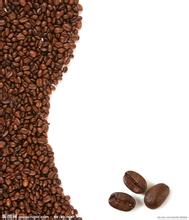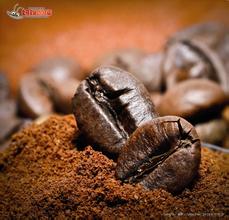Introduction to the quality characteristics of Rwandan Coffee roasting methods, Taste and Flavor description treatment
Introduction of Rwandan Coffee beans
Rwanda coffee is absolutely high quality in the form of washed Arabica beans. As far as Africa is concerned, its coffee industry is remarkable because the country thrives mainly by producing the best possible coffee beans. Coffee from Rwanda is becoming more and more popular in the international market.
The mission of the Rwanda Coffee Association is to manage and supervise the operation of the coffee industry in Rwanda from production to sale. The recently revised mission focuses on policy formulation and implementation, with more emphasis on the need to improve the professionalism of the coffee industry and to increase marketing efforts. Since its establishment, the Rwanda Coffee Association has promoted the Rwandan coffee culture and promoted the influence of Rwandan coffee. In 1999, 220 coffee growers formed a guild around Malaba (formerly part of the province of Butare) to solve the problem. Among the guild members, many farmers were separated from their loved ones by the 1994 mass massacre, while some husbands were jailed or were taken to the traditional Gacaca Court (gacaca) to face trial on charges of participating in the massacre. They named the guild "Abau Zam Gambi" (Abahuzamugambi), which means "people who work together to achieve their goals" in Rwandan. Farmers hope that by setting up this association, they will be able to work directly with Geely's exporters instead of peeling layers of skin through intermediary transportation companies, so as to increase profits. Farmers distribute their profits and spend them on tools, fertilizers and seeds to increase production
In early 2003, UCR distributed Malaba coffee through the Sainsbury's supermarket in Sainsbury and sold it in its 350 stores until Red nose Day that year. In 2003, Abauzam Gump made a net profit of US $35000. Of this, 70 per cent is allocated to farmers at a price of US $0.75 per kilogram, more than three times the profits earned by other Rwandan coffee growers and enough to cover previously unaffordable health care and education services. The remaining 30% is invested in cooperatives and used to buy calcium carbonate, which can reduce the increase in acidity of soil caused by mineral loss by rainfall.

Important Notice :
前街咖啡 FrontStreet Coffee has moved to new addredd:
FrontStreet Coffee Address: 315,Donghua East Road,GuangZhou
Tel:020 38364473
- Prev

Vietnam Weishuo Coffee Bean Arabica Karabasta mixed Bean Flavor description Grinding degree
Vietnam Coffee Vietnam's geographical location is very favorable for coffee cultivation. Southern Vietnam has a hot and humid tropical climate, which is suitable for growing ROBUSTA coffee, while the north is suitable for growing ARABICA coffee. Coffee production in Vietnam has the following characteristics: (1) because there is no effective way to deal with fallen leaves, medium-grain coffee was selected as the main variety in the early 1980s. (2) to seed
- Next

Introduction to the Flavor characteristics of Brazilian Bourbon Rivida Coffee beans, Grinding scale varieties and quality
Brazilian coffee beans the bourbon in the Brazilian bourbon Santos comes from the Bourbon Indian Arabica coffee tree. The island of Bourbon, now known as Reunion, was once a thriving place for Arabica coffee. Arabik coffee trees grown on the island were introduced around the world, and Brazil's Bourbon Santos is their descendant. Santos is from the port of Sandushi, which is a part of the Atlantic Ocean in southeastern Brazil.
Related
- Detailed explanation of Jadeite planting Land in Panamanian Jadeite Manor introduction to the grading system of Jadeite competitive bidding, Red bid, Green bid and Rose Summer
- Story of Coffee planting in Brenka region of Costa Rica Stonehenge Manor anaerobic heavy honey treatment of flavor mouth
- What's on the barrel of Blue Mountain Coffee beans?
- Can American coffee also pull flowers? How to use hot American style to pull out a good-looking pattern?
- Can you make a cold extract with coffee beans? What is the right proportion for cold-extracted coffee formula?
- Indonesian PWN Gold Mandrine Coffee Origin Features Flavor How to Chong? Mandolin coffee is American.
- A brief introduction to the flavor characteristics of Brazilian yellow bourbon coffee beans
- What is the effect of different water quality on the flavor of cold-extracted coffee? What kind of water is best for brewing coffee?
- Why do you think of Rose Summer whenever you mention Panamanian coffee?
- Introduction to the characteristics of authentic blue mountain coffee bean producing areas? What is the CIB Coffee Authority in Jamaica?

